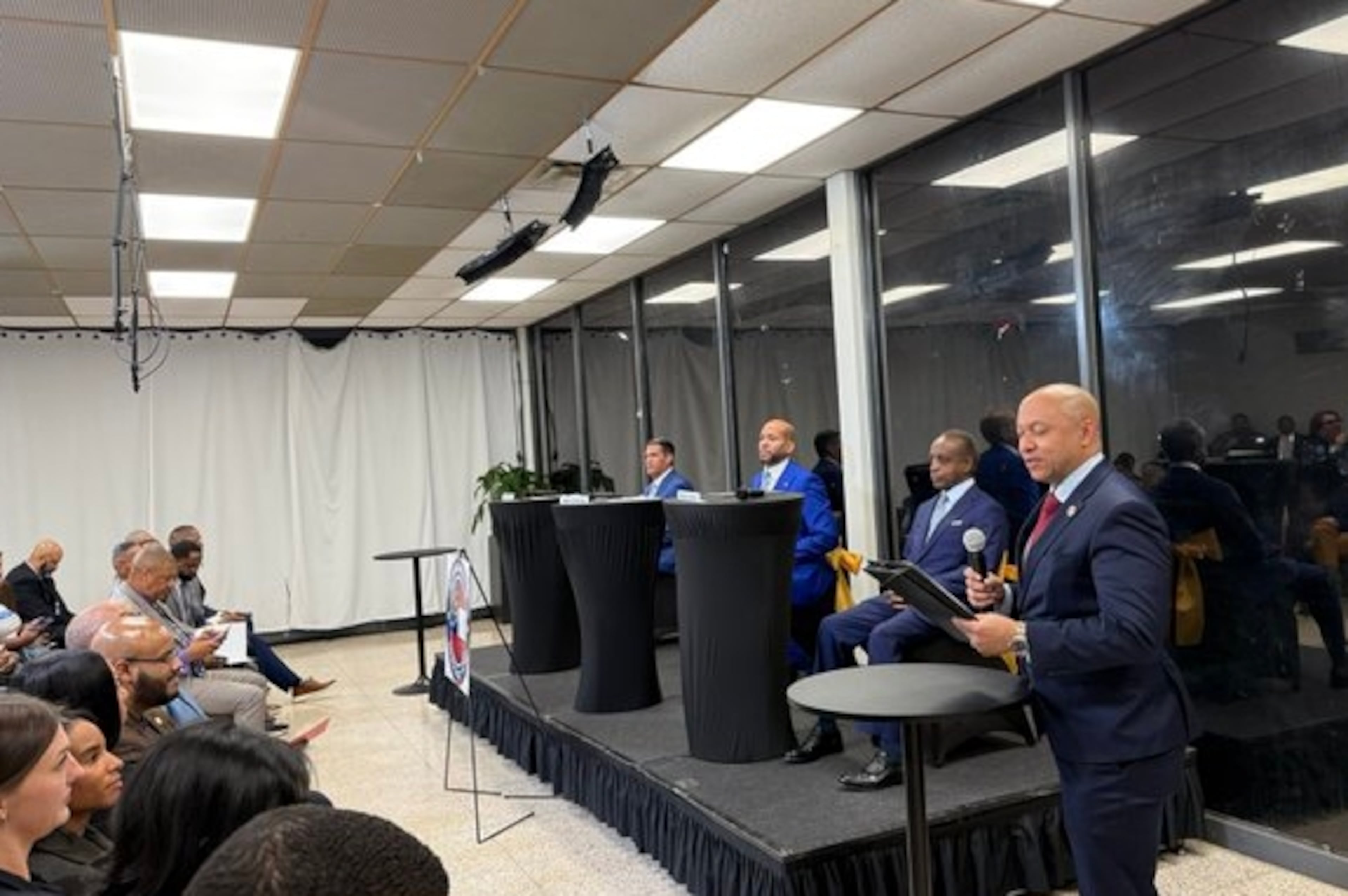The Fani Willis hearing: What we learned
Fulton County Superior Court Judge Scott McAfee has a lot to consider as he decides whether to disqualify District Attorney Fani Willis from prosecuting the election interference case against former President Donald Trump and 14 others.
Attorneys for numerous defendants have sought to disqualify Willis and the Fulton DA’s office in part because of her romantic relationship with special prosecutor Nathan Wade, the private attorney she contracted with to oversee the case. The defendants say Willis personally profited because Wade spent some of the hundreds of thousands of dollars he earned from Fulton County on trips with Willis to such locations as Belize, Aruba and Napa Valley. Willis and Wade deny they’ve done anything improper.
McAfee heard two days of testimony – some of it contradictory – last week as he sought to determine whether the Willis-Wade relationship poses a conflict of interest that should remove the DA’s office from the case. Before the hearings, the judge laid out what he hoped to learn:
“I think the issues at point here are whether a relationship existed, whether that relationship was romantic or non-romantic in nature, when it formed and whether it continues,” McAfee said. “And that’s only relevant because it’s in combination with the question of the existence and extent of any personal benefit conveyed as a result of their relationship.”
Here’s what we learned – and didn’t – from last week’s hearings.
A private romance: Going into the hearing, Wade and Willis had already acknowledged in a court filing from the DA’s office that they were in a personal relationship. On the stand last week, the prosecutors confirmed they were romantically involved. But Wade testified he did not disclose their romance to other members of the prosecution team.
“We’re private people,” he testified. “Our relationship wasn’t a secret. It was just private.”
When the romance began: Wade testified he met Willis at a judicial conference in October 2019. In the months that followed, she sought his advice on municipal court matters and on running for office (she was elected DA in 2020). Willis hired Wade to oversee the election interference case in November 2021 after being turned down by former Gov. Roy Barnes and Gabe Banks, a defense attorney and onetime prosecutor.
McAfee heard conflicting accounts of when Willis and Wade’s romance began. Robin Bryant Yeartie, a former friend and colleague of Willis’, testified that the DA told her she and Wade were romantically involved before Willis hired him to oversee the case. Yeartie said she saw the couple hug, kiss and be affectionate just weeks after they met in 2019.
Wade and Willis testified their romantic relationship began in early 2022 – he said “around March,” she said “between February and April.”
Defense attorneys also contended Wade’s former law partner, Terrence Bradley, had information about when the romances started. But attorneys for Wade, Bradley and the DA’s office argued Bradley could not testify because he had been Wade’s divorce attorney, and any knowledge he had was protected by attorney-client privilege. McAfee will hear from Bradley in a private conference and determine whether his knowledge is protected.
The DA’s office sought to undermine the credibility of Yeartie and Bradley. Yeartie acknowledged on the stand that she resigned rather than be fired by the DA’s office for poor performance. Bradley allowed that he had been accused of sexual assault when he worked at Wade’s law firm. Bradley denied that he had committed sexual assault.
The romance is over: Wade and Willis both testified their romantic relationship ended last summer but they remain friends. In fact, they testified that the allegations against them have drawn them closer together.
“You have cemented that we will be friends until the day we die,” Willis said.
Financial benefit: The defense attorneys did not conclusively establish that Willis had benefitted financially from hiring Wade. But it wasn’t for lack of trying.
They quizzed Wade about the invoices he submitted for payment – he’s earned more than $728,000 for his work on the election case. Special prosecutor Anna Cross of the DA’s office noted that Wade potentially lost money from private clients by taking the job and devoted far more hours to the Fulton case than he was paid because he had a monthly cap on his compensation. Wade also noted that he split at least some of the money after expenses with his law partners.
Defense attorneys highlighted the thousands of dollars he spent on plane tickets and hotels for trips with Willis. Wade and Willis testified that she reimbursed him for the trips – either through cash or by paying for wine tastings and other activities while they traveled. Wade acknowledged he had no documentation of the cash reimbursements.
“If you’ve ever spent any time with Ms. Willis you understand she’s a very independent, proud woman,” Wade testified. “So she’s going to insist that she carries her own weight, and it actually was a point of contention between the two of us. She is going to pay her own way.”
In testimony, Willis’ father, John Clifford Floyd III, backed up her story that he advised her to keep large amounts of cash on hand – a lesson he said he learned after a restaurant refused to accept his American Express card, a credit card or a traveler’s check. He believed it was because he is Black.
“It’s a Black thing,” Floyd testified Friday. “Most Black folks, they hide cash or they keep cash.”
What’s next: McAfee must decide whether Bradley’s testimony can be considered as he makes his decision about disqualifying Willis. The judge is expected to schedule summary arguments on the issue late this week or next week.
Staff writers Tamar Hallerman and Bill Rankin contributed to this report





